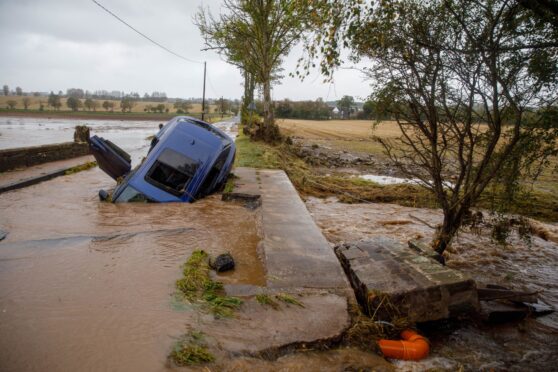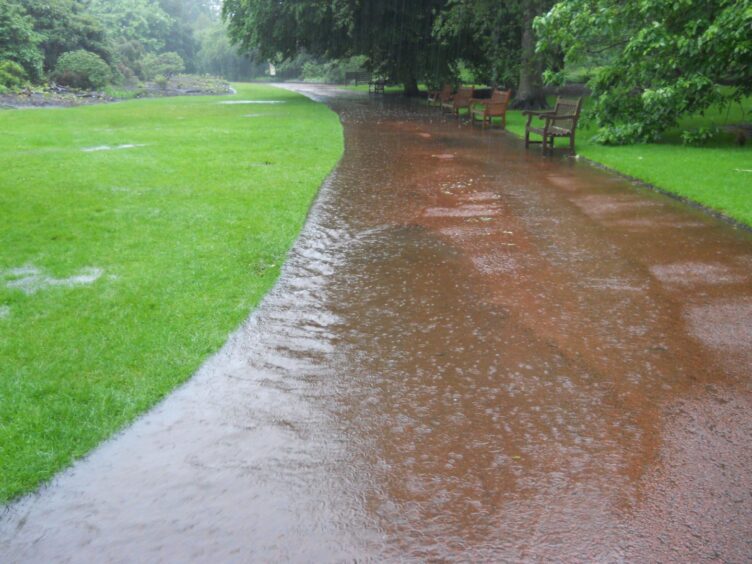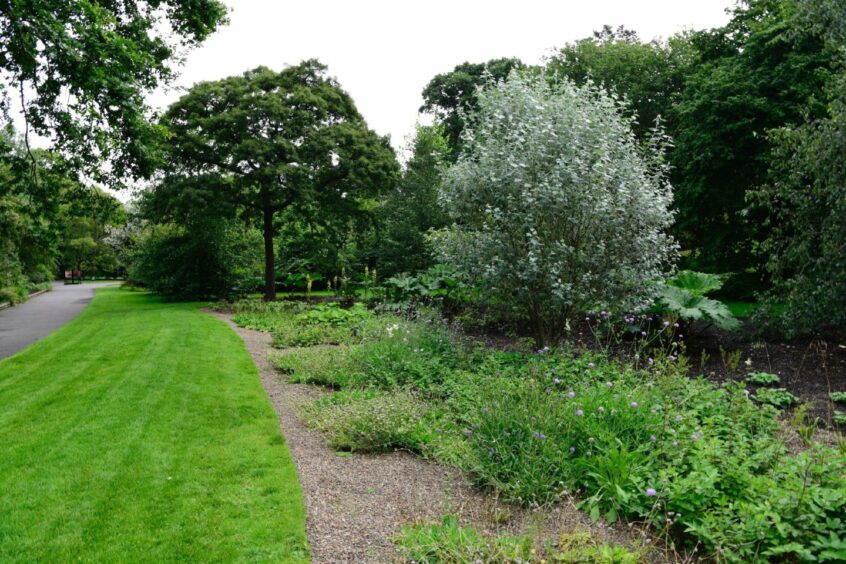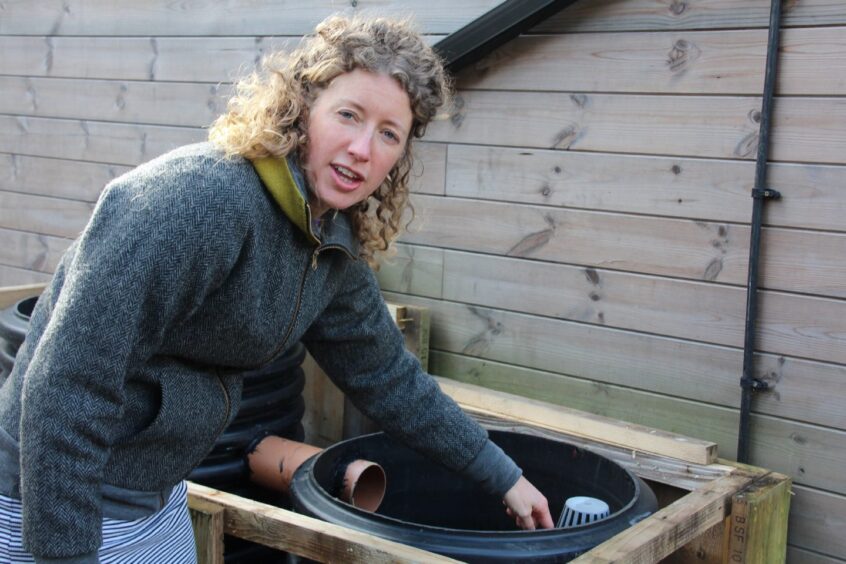
A £500,000 research programme is being launched to assess how garden plants can be better used to absorb flash-flood water, moderate extreme temperatures in built-up areas and provide better conditions for key pollinators.
The move comes amid a series of extreme storms and rising concern about the concreting of front gardens.
The five-year Plants With Purpose initiative will be officially launched in spring by experts at the Royal Botanic Garden Edinburgh (RBGE).
Moves are in hand to use the organisation’s own four sites around Scotland as living laboratories for the project.
And, while working towards government adaptation targets, it is believed the research programme can potentially help promote economic growth by encouraging increased productivity and jobs as knowledge and trade practices evolve.
Plants making a difference
Underscoring the need for the research, Raoul Curtis-Machin, RBGE director of horticulture and visitor experience, said: “While we know intuitively green is good, and plants are essential for our planet and our lives, we need to find out more about how different plants can tangibly work in the battle to cope with our changing climate.
“Plants are already incorporated into landscape features such as green walls and roofs, rain gardens and storm-water planters. Collectively referred to as blue-green infrastructure and nature-based solutions, these are now making differences in towns and cities around the world.
“As a leading botanic garden and also a visitor attraction, we are perfectly placed to work with a broad spectrum of partners to measure, improve and communicate these traits, to equip individuals, industry and policy makers with the knowledge, tools and skills to use natural solutions to help us adapt to the changing climate.”

For the first time since records began, named storms have battered the country almost every month this winter. Agnes in September 2023; Babet in October; Ciaran and Debi in November; Elin, Fergus and Gerrit in December; and Henk and Isha in January just gone.
The extreme weather caused major flooding across Scotland, severely disrupting rail, road and air travel and destroying gardens.
Another growing problem is that three times as many front gardens are now completely paved over compared to two decades ago. Paving increases the risk of flash-flooding – instead of grass and soil soaking up the rain, it runs straight off paving and overwhelms drainage systems and floods roads.
The research team is led by RBGE ecologist Dr Chris Ellis, who added: “The legacy of traditional urban grey infrastructure in our cities is ill-prepared to contend with the impacts of heat and extreme weather in our changing climate.
“Therefore, using traditional infrastructure to engineer our way out of the climate emergency is not always the most efficient path; nature already holds many solutions we can deploy for more sustainable and liveable future cities. Including nature-based solutions in our adaptation toolkit makes good sense.”
Plants With Purpose
Scientists Caitlyn Johnstone and Dr Emma Bush will run the Plants With Purpose programme. Over the next few weeks, they will be engaging in conversation with educators, specialists and industry around the UK.
The opinions of local authorities and members of the public will also ensure the research achieves maximum impact in helping mainstream these nature-based solutions across Scotland and beyond.
Stressing the case for urgent action, Johnstone said: “It is too urgent a situation to address piecemeal. In nature, we have excellent examples of plants acting as integral parts of effective strategies to complex problems. This new programme will give us an opportunity to collect and share data while demonstrating ecosystem solutions in real time, pairing the right plants to the right dilemmas for the good of both humans and nature.”
Bush said we need to make more space for nature in our cities. “Designing plants into our buildings and streets can help soak away excess rainfall, cool and clean our air, and even improve our own health and wellbeing. But knowing which plants to use where, and how to look after them, can be a challenge.”
She added: “We cannot wait to get stuck into this new research and share what we learn with visitors to our gardens, the wider public and partner organisations.”

Enjoy the convenience of having The Sunday Post delivered as a digital ePaper straight to your smartphone, tablet or computer.
Subscribe for only £5.49 a month and enjoy all the benefits of the printed paper as a digital replica.
Subscribe
 © Supplied
© Supplied